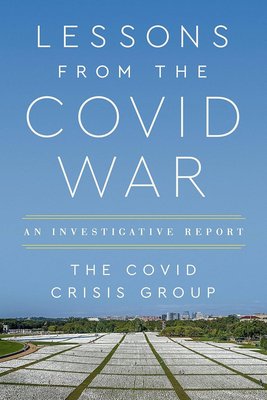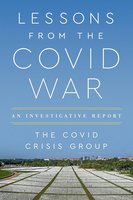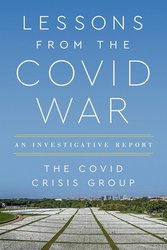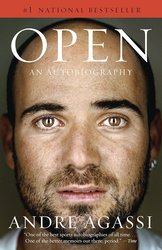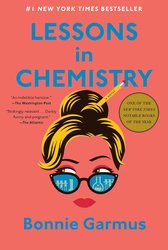This powerful report on what went wrong—and right—with America’s Covid response, from a team of 34 experts, shows how Americans faced the worst peacetime catastrophe of modern times Our national leaders have drifted into treating the pandemic as though it were an unavoidable natural catastrophe, repeating a depressing cycle of panic followed by neglect. So a remarkable group of practitioners and scholars from many backgrounds came together determined to discover and learn lessons from this latest world war. Lessons from the Covid War is plain-spoken and clear sighted. It cuts through the enormous jumble of information to make some sense of it all and answer: What just happened to us, and why? And crucially, how, next time, could we do better? Because there will be a next time. The Covid war showed Americans that their wondrous scientific knowledge had run far ahead of their organized ability to apply it in practice. Improvising to fight this war, many Americans displayed ingenuity and dedication. But they struggled with systems that made success difficult and failure easy. This book shows how Americans can come together, learn hard truths, build on what worked, and prepare for global emergencies to come. A joint effort from: Danielle Allen • John M. Barry • John Bridgeland • Michael Callahan • Nicholas A. Christakis • Doug Criscitello • Charity Dean • Victor Dzau • Gary Edson • Ezekiel Emanuel • Ruth Faden • Baruch Fischhoff • Margaret “Peggy” Hamburg • Melissa Harvey • Richard Hatchett • David Heymann • Kendall Hoyt • Andrew Kilianski • James Lawler • Alexander J. Lazar • James Le Duc • Marc Lipsitch • Anup Malani • Monique K. Mansoura • Mark McClellan • Carter Mecher • Michael Osterholm • David A. Relman • Robert Rodriguez • Carl Schramm • Emily Silverman • Kristin Urquiza • Rajeev Venkayya • Philip Zelikow
